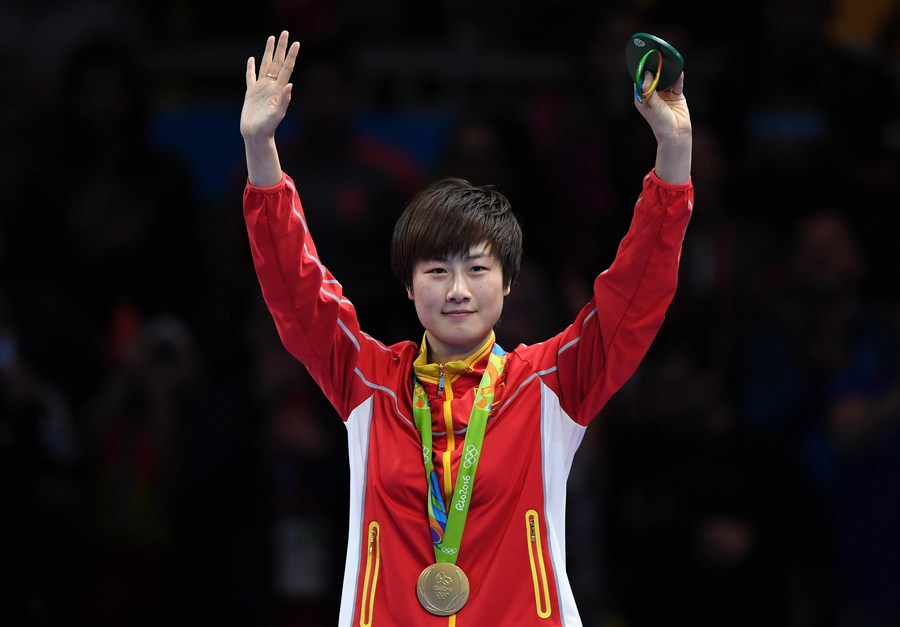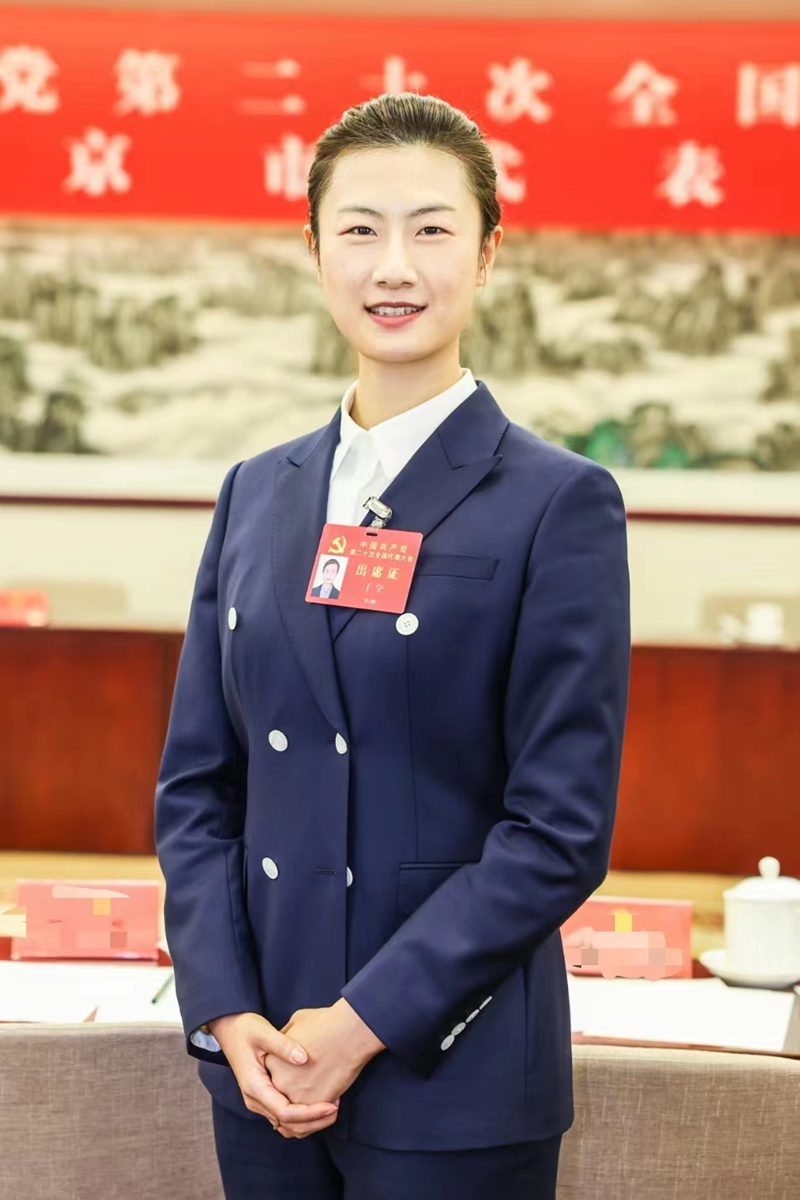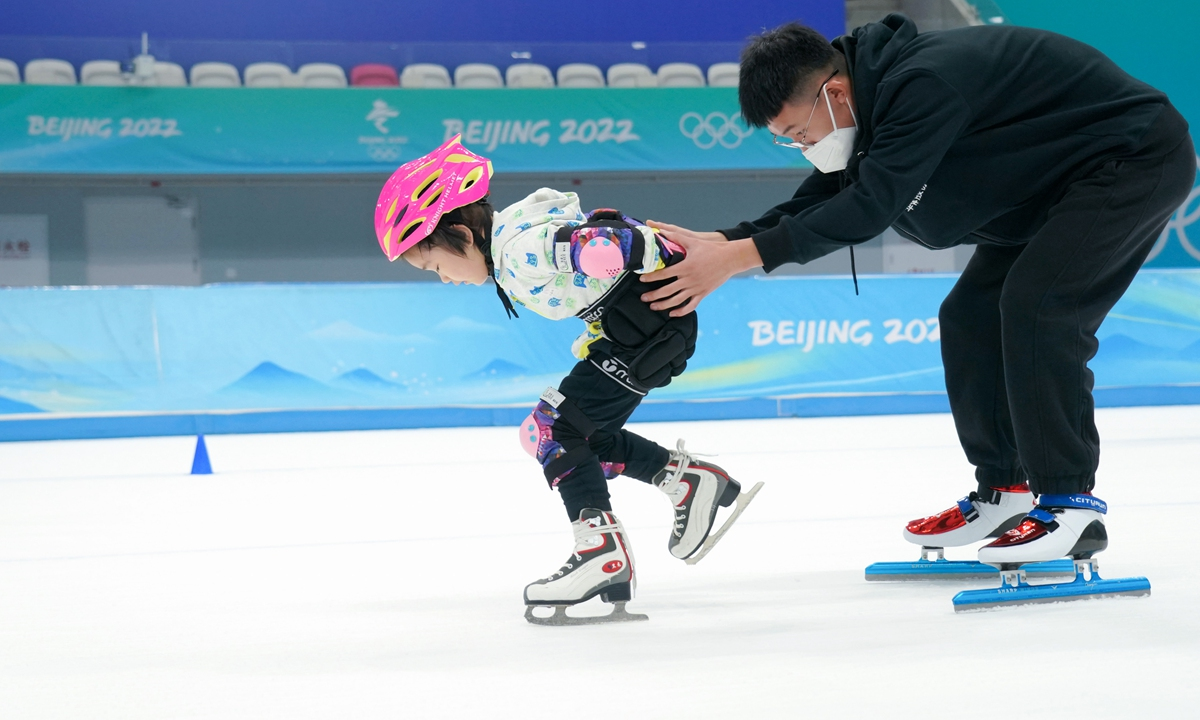Gold medalist Ding Ning attends the awarding ceremony for the women's singles final at the 2016 Rio Olympic Games, Aug. 10, 2016. (Xinhua/Lin Yiguang)
Editor's Note:
Who is the Communist Party of China (CPC)? What is the CPC's role in the new era?
The CPC has grown into one of the largest ruling parties in the world in the process of leading the Chinese people in seeking liberation and happiness, making China as strong and prosperous as it is today.
As the CPC ushers the nation into a new era of development, the past decade has witnessed great achievements in national strength and prosperity, with people's confidence and recognition of this path rising to unprecedentedly high levels.
With more than 96 million members, the CPC concluded its 20th National Congress in October, which has realized the goals of unifying thinking, fortifying confidence, charting the course for a new era, and boosting morale. The Global Times is publishing a series of stories to help the world understand the CPC in this new era, through stories from CPC members working on the frontlines of various fields, as well as through observations made by respected scholars.
This installment tells the story of an outstanding table tennis player and delegate to the 20th CPC National Congress from Beijing, whose experiences reflect China's continued breakthroughs in sports over the past decade.
Over the past decade, Ding Ning has made tremendous gains in competitive sports on the global arena, and in promoting mass fitness in her home country.
As one of the most successful female table tennis players to have ever won a Grand Slam singles title, over her 26-year career, Ding has been a source of countless inspirational stories in the history of Chinese table tennis.
But Ding's source of pride isn't just from being an exemplary professional athlete.
From being a Party delegate and experiencing the successful conclusion of the CPC National Congress in the Great Hall of the People, to returning to academia after her retirement, and working as a guest commentator while witnessing China claiming its fifth consecutive title at the 2022 ITTF World Team Table Tennis Championships Finals... After taking a step back from the competitive arena of professional table tennis, Ding has taken the initiative to apply her champion spirit in more areas.
"These new identities are both opportunities and challenges for me, and I will continue to uphold the same passion that I had when I fought in many of the table tennis matches, to promote campus sports culture and public fitness, and inspire more people to cultivate a love for the sport," she told the Global Times.
Ding Ning. Photo: Courtesy of Ding
Path of breakthroughs
"My table tennis dream is closely related to the development of China as a sports powerhouse," Ding said.
Ding started playing table tennis at the age of 5, joining the national team at 13 and becoming captain of the women's national team at 27. Over the course of her career, she won a total of 21 world championships, but she has always attributed these glittering honors to her team's and country's support.
In 2001, when Beijing won the Olympic bid, the 11-year-old Ding was earmarked by the Beijing table tennis team as a seed player for future training. Ever since then, Ding sporting a buzz cut has made it her life's dream to compete for her country and win as many championships as she could.
At the Beijing 2008 Olympics, as a spectator, Ding witnessed the Chinese table tennis team winning the gold medal at the Peking University Khoo Teck Puat Gymnasium, and was touched by the moving scene of her compatriots singing the national anthem together.
Ding joined the CPC in 2012 just before attending the London 2012 Olympics, and won the women's team table tennis title. At the Rio 2016 Olympics, Ding won two gold medals in the women's table tennis singles and women's team, earning her Grand Slam title.
This year, Ding became a torchbearer for the Beijing 2022 Winter Olympics to cheer on the participating athletes in a different way.
Ding's story is a microcosm of the emergence of hundreds of thousands of elite Chinese athletes. "The playing field is always about winning and losing. Trying to win the highest honors is both a testament to the athletes' own prowess and one of the most fascinating parts about competitive sports," she said.
From China winning incredible big in the AFC Women's Asian Cup, extending the 9th title since the last championship in 2006, to the Chinese men's volleyball team winning the first championship of the Asian Cup in 10 years, and Su Bingtian becoming Asia's fastest man to set an Asian record of 9.83 seconds at the Tokyo 2020 Olympic Games held in 2021, the last decade has seen a series of breakthroughs showcasing China's high-level comprehensive development of competitive sports.
According to the General Administration of Sport of China, from 2012 to 2021, Chinese athletes won 986 world championships and set 127 world records.
In Ding's view, elite athletes' success cannot be achieved without government support. "We are fully immersed in the good training and competitive environment provided by our country, and we are also always ready to repay our country with excellent results."
Ding mentioned that the Chinese table tennis team has a tradition of actively joining the CPC. She recalled that when she was an athlete, the team would hold a weekly training summative meeting to emphasize the importance of defending and carrying on China's sports legacy.
"The Chinese table tennis team also has another good tradition." Ding revealed. "Bootcamps are conducted in the coldest time of the year, to cultivate the collective consciousness and patriotism of the athletes."
Although table tennis is more of an individual sport on the court, every player on the national team is well aware of their responsibilities, Ding noted.
"The interests of the country and the team are paramount to us," she said.
Inextricable from nation's progress
"From the motto of 'One World, One Dream' of the 2008 Beijing Olympics to 'Together for a Shared Future' at the Beijing 2022 Winter Olympics, China has not only cultivated many outstanding athletes, but also demonstrated to the world that it is confident and strong by successfully hosting various sporting events," Ding said.
In the process of Ding's transition from athlete to student and coach, she was also delighted to see her country more actively and proactively take international center stage. "For example, the success of the Beijing 2022 Winter Olympics served as an inspirational guide for countless athletes in their training, and truly established a bridge of communication to the world in a complex and turbulent global context," Ding said.
Ding believes that the development of Chinese sports is inextricable from the nation's opening up and progress. Taking table tennis as an example, Ding told the Global Times that the "little white ball" has inspired many stories that have promoted the development of friendship between China and foreign countries.
In November 2018, backed by the Shanghai University of Sports, a table tennis college center was established in Butuka Academy, a Papua New Guinea (PNG) and China friendship school, in Port Moresby, PNG. After less than a year of training, in July 2019, the PNG table tennis team members won two silver medals at the Pacific Games, setting the best record in the country's history at the time,
History also was made in Houston, Texas, in November 2021, as Chinese and US players joined forces at the 2021 World Table Tennis Championships Finals in the year marking the 50th anniversary of "Ping-Pong Diplomacy" and continued the legacy cooperation and interaction between the two countries.
Ding pointed out that in recent years, Chinese sports have further presented a confident, inclusive, and international image. In this context, in addition to the pursuit of performance, Chinese athletes have also shown more multidimensional and positive characteristics in various fields.
In the field of table tennis, over the years, many former Chinese players have actively participated in international table tennis affairs, adding to China's international sports contributions and showing the world that "we want to enjoy sports with players from all over the world," Ding said.
As China's national sport, table tennis enjoys high popularity, and players represented by Ding and Ma Long have been young people's idols.
In the face of the attention in and out of the arena, Chinese table tennis players are stricter on themselves, constantly improving their comprehensive abilities, and positively contributing to various public welfare activities, while enriching the public's cognition of sports.
The new generation of young athletes, such as the current world No.1 women's singles player Sun Yingsha, and reigning world champions Wang Manyu and Wang Chuqin, are more able to express their own personalities, better communicate with the outside world, and show a greater range of skills on the court, Ding said.
Passing on sportsmanship
In September 2021, then 31-year-old Ding began to study for a master's degree in physical education at Peking University after her retirement. While studying, she also works as a teacher in the campus' advanced table tennis class.
After retiring from the arena, Ding has now fully adapted to campus life.
"When I was an athlete, I maintained an intensive daily training schedule," Ding said. Now back on campus, Ding enjoys more stability and a shifted focus.
From discussions with teachers and fellow students, Ding believes that campus sports are currently receiving greater attention.
Ding has been focused on the promotion of youth campus sports, hoping to apply her specialization in physical education and contribute to national fitness.
"This process is blissful to me; I look forward to working with more people to inspire discovery and understanding of sports from a different perspective, so that Chinese people can exercise better and benefit from it long-term," Ding said.
In 2014, Fitness-for-All activities was made a key national strategy.
A child learns to skate at the National Speed Skating Oval. Photo: Xinhua
"Focusing on meeting people's demands, we must build more facilities for Fitness-for-All activities and establish a higher-level public service system for Fitness-for-All programs," said Chinese President Xi Jinping, also general secretary of the Communist Party of China Central Committee and chairman of the Central Military Commission, who has on many occasions expounded on his understanding of sports and laid down principles for the cause.
By the end of 2020, 37.2 percent of people in China were recorded as regularly participating in physical exercise, and 90.4 percent had passed the country's standard physical fitness examination. By the end of 2021, there have been more than 2.7 million certified social sports instructors in China.
From the pursuit of "peak competition" to the promotion of public fitness, and now as a student, Ding not only teaches professional table tennis skills but passes on the tenacious spirit of sportsmanship to her students.
"I hope to make more people feel and obtain the resilience that sports bring, to 'hold on a little longer' when they encounter difficulties and setbacks," Ding said.
"The Party and the country have provided diversified choices for the future development of the youth, and I believe that the Chinese youth will emerge on the world stage in more fields and gain more 'champions' in the future," she said.
Source:
Global Times
Written by:
Lin Xiaoyi, Shan Jie


